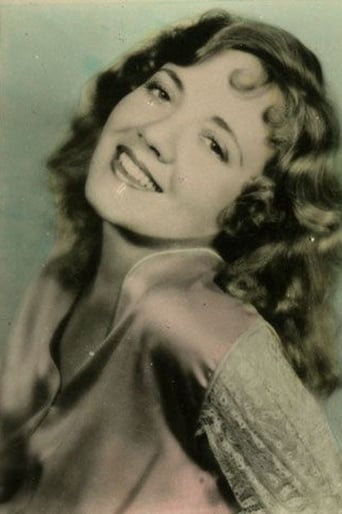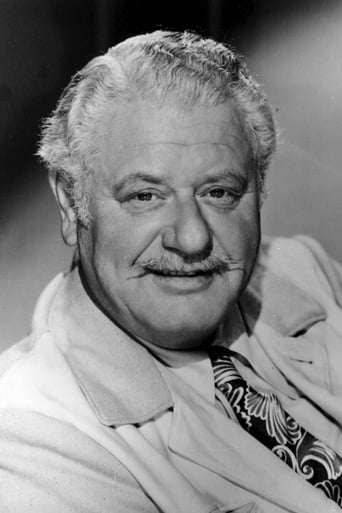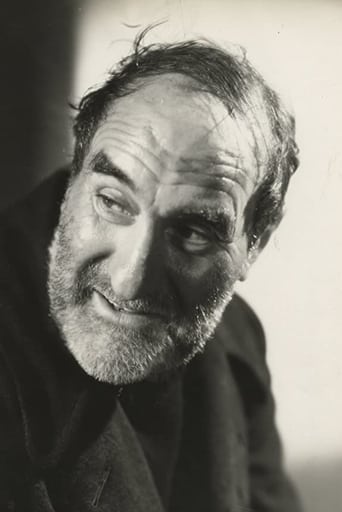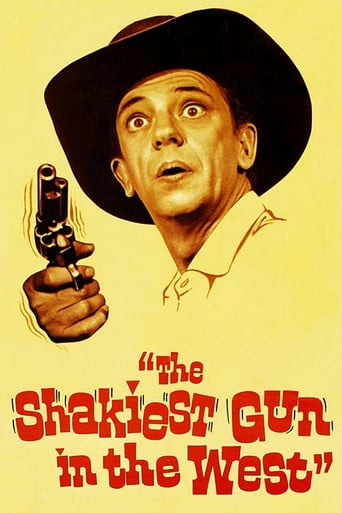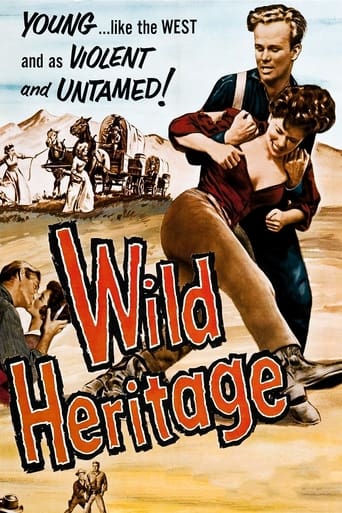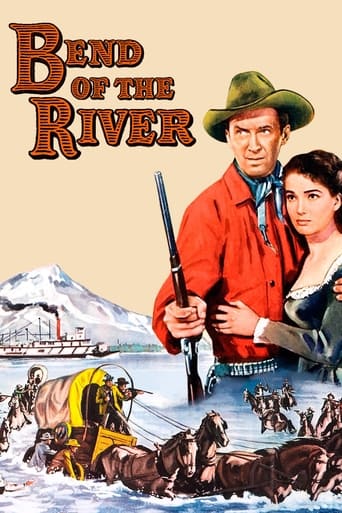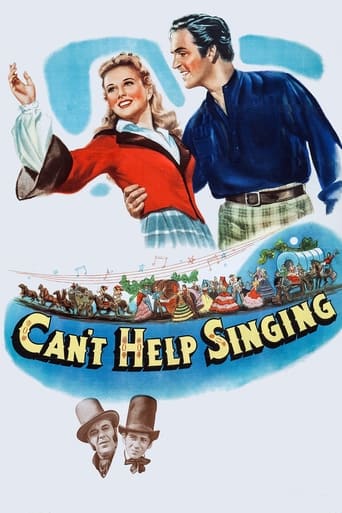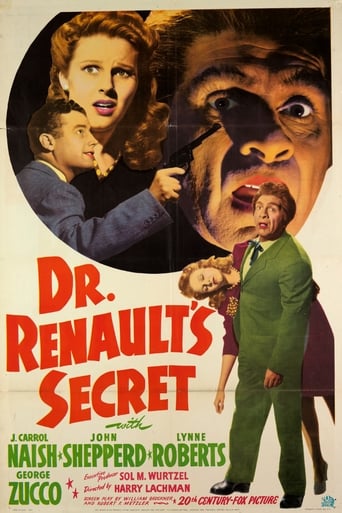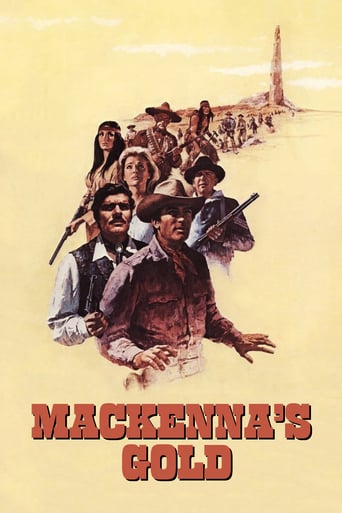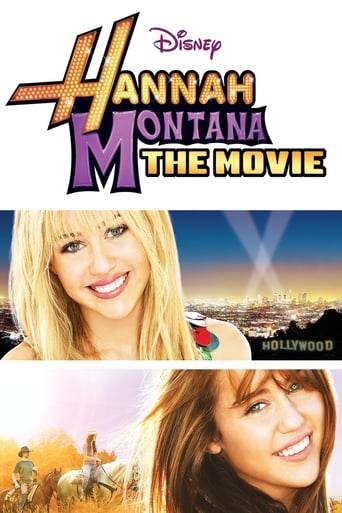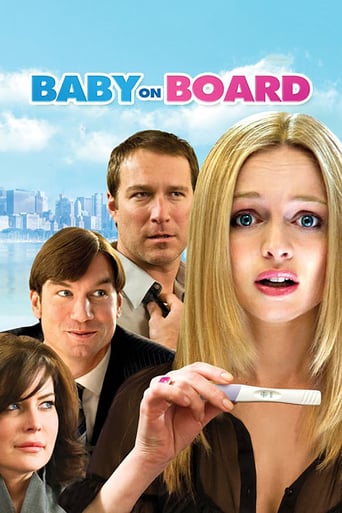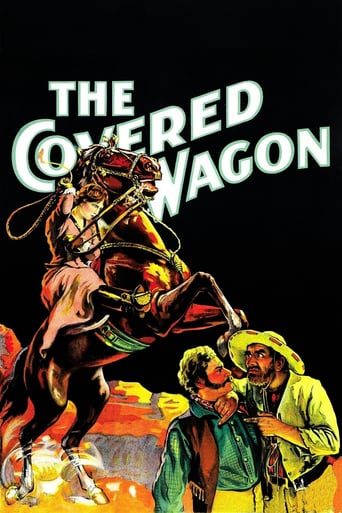

The Covered Wagon (1923)
Two wagon caravans converge at what is now Kansas City, and combine for the westward push to Oregon. On their quest the pilgrims will experience desert heat, mountain snow, hunger, and Indian attack. To complicate matters further, a love triangle develops, as pretty Molly must chose between Sam, a brute, and Will, the dashing captain of the other caravan. Can Will overcome the skeleton in his closet and win Molly's heart?
Watch Trailer
Cast
Similar titles
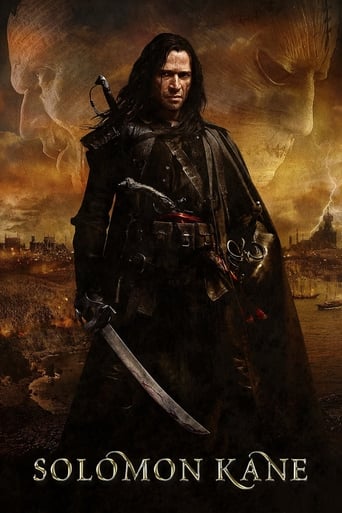
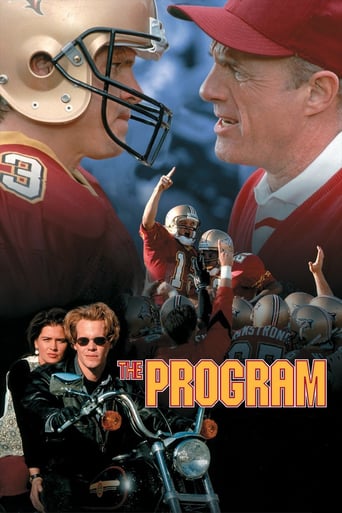
Reviews
Fantastic!
The film's masterful storytelling did its job. The message was clear. No need to overdo.
The story, direction, characters, and writing/dialogue is akin to taking a tranquilizer shot to the neck, but everything else was so well done.
Blistering performances.
The Covered Wagon (1923) *** (out of 4)Highly entertaining and influential Western about a large wagon train that starts off in the Midwest and plans to head out West and up into Oregon. Along the way there are various internal battles as well as dangerous issues with Indians as well as other problems with their journey.One could watch THE COVERED WAGON today and say that it doesn't have anything original to it but they would be missing the point. This was a very original movie when it was originally released and it has been copied so many times since 1923 that some people might forget or just overlook the fact that the rules were formed here for all future Westerns. There are certainly some flaws in the film but at the same time there's no question that this is a highly entertaining movie and one that works on many levels.As I said, the film is basically about this large wagon train heading out West and we see the various problems that happen on the journey. This includes a love triangle between the three main characters. You've got the good guy Will (J. Warren Kerrigan), the bad guy Sam (Alan Hale) and then there's Molly (Lois Wilson) who both want. This leads to some very fun scenes including an extended fight sequence that was perfectly directed by James Cruze. You've also got some other great action including a river crossing, a buffalo hunt and a sequence where the wagons are attacked by Indians.There are some flaws with the film including Kerrigan not being that strong as the lead. I thought he gave a fine performance and I thought he was good to watch but at the same time I think the film would have benefited from a stronger lead. Hale was wonderful as the villain and Wilson was cute enough for what she was asked to do. The film featured some very good cinematography and I'd also argue that the editing itself was good. The locations were great and while the story itself wasn't the strongest, it was at least good enough to hold your attention throughout.THE COVERED WAGON is certainly a landmark Western and one that influenced everything that was to follow. The movie isn't perfect but it's about as entertaining as you can get.
THE COVERED WAGON (Paramount, 1923), directed by James Cruze, is a western, a large scale western, in fact, was reportedly one that became the inspiration of future western epics of similar theme and nature, consisting of hero, heroin, villain, two old scouts for comedy flavor, Indians, cattle, and a large assortment of movie extras for authentic feel to the pioneering days in American history.From the novel by Emerson Hough and adapted by Jack Cunningham, the curtain rises presenting the traditional opening credits prior to the introducing inter-titles of what's to be shown: "The blood of America is the blood of pioneers - the blood of lion-hearted men and women who carved a splendid civilization out an uncharted wilderness. With dauntless courage facing unknown perils, the men and women of the "forties" flung the boundaries of the nation. Westward and still westward, beyond the Mississippi, beyond the prairies, beyond the Rockies - until they bounded the United States of America with two oceans." "Westport Landings, 1848, since called Kansas. In May of that year, a great covered wagon caravan gathers together from every section or the Ohio and Missouri valleys, eager to brave the two thousand miles of hardship that lay between Westport and Oregon." Taking part of the 2,000 miles of hardship between Westport and Oregon is Will Banion (J. Warren Kerrigan), veteran of the Mexican War and selected leader of the Liberty Boys. Though engaged to marry Sam Woodhull (Alan Hale), Molly Wingate (Lois Wilson) very much prefers to put off their wedding until after reaching their destination. Suspecting Molly to be in love with Banion, Woodhull does everything possible to discredit him, even to a point of spreading rumors of he being a cattle thief. A violent battle between the two rivals not only causes Molly to not ever wanting to see Banion again, but forcing the traveling caravans to go on their separate ways - Banion taking charge of one group while Molly's father, Jesse Wingate (Charles Ogle) leads the other, each facing their own unforeseen dangers and hardships ahead.As westerns being part of American cinema practically from its humble beginnings, with Broncho Billy Anderson, Tom Mix and William S. Hart as legendary names associated in that genre, by today's standards, THE COVERED WAGON, lacks any top marquee names of interest. J. Warren Kerrigan, who slightly resembles the gentle profile of John Boles than a rugged leading he-man type of Kirk Douglas, is one actor who, with an assortment of film roles to his credit, suddenly disappeared from movie making by 1924. Lois Wilson, who never achieved super stardom, resumed further into the sound era, while Alan Hale, the most recognizable face here, would play a variety of character parts until his death in 1950. Overlooking the cliché story and troublesome romantic subplot and Johnny Fox's banjo "singing" of Stephen Foster's "Oh Susannah" on a couple of occasions, this 98 minute epic tale does offer notable highlights of interest, including caravans crossing the deep river, prairie fire, Indian attacks, among others.With countless imitations over the years, John Ford's THE IRON HORSE (Fox, 1924), a prime example, Paramount's Zane Grey's based story, FIGHTING CARAVANS (1931) starring Gary Cooper (DVD title: "Blazing Arrows"), bears a strong resemblance to THE COVERED WAGON, especially with the support of COVERED WAGON co-stars Ernest Torrence (Bill Jackson) and Tully Marshall (Jim Bridger) reprising their original named roles.Out of the television markets since its public television presentation of the weekly series "The Toy That Grew Up" (WNET, Channel 13, New York City, 1965-1972) where THE COVERED WAGON was severely edited in to fit into its sixty- minute time slot, the film was later restored to its original length, distributed to video cassette in the 1990s equipped with clear picture quality and excellent Gaylord Carter organ score for viewer's enjoyment. Westward Ho!(***)
Good accuracy on most of the equipment and clothing. The leading characters' make-up was almost clown-like and over-acting was running rampant, but that was the norm of the time and cannot really be criticized. What cannot be excused is the pathetically weak and insipid story line.Jim Bridger's only surviving child, Virginia K. Bridger Wachsman Hahn, reacted violently after viewing Tully Marshall's portrayal of her father in the then newly-released `The Covered Wagon' in 1923. She instituted a $1,000,000 libel action against the Famous Players-Lasky Corporation, charging that they wrongfully depicted her father as a drunkard and a man of questionable morals, defaming his character and casting a stain upon her birth.Judge Albert L. Reeves, of the federal court at Kansas City, sustained a demurrer filed by the defendants on the grounds no one could recover damages for defamation of the character of an ancestor, setting the precendent for Hollywood's dismal record of accuracy in its portrayal of historic personages.
The first great western epic, The Covered Wagon established many of the cliches that appear in many subsequent westerns, both "A" and "B" features alike.Here for the first time, we have the wagon train of eastern settlers trekking west in search of a new land and a new start. We have the circling of the wagons in preparation for the Indian attack, the attack itself and the ride to the rescue of the besieged wagons.Cruze captures the feel of what a real wagon train journey must have been like. The long lines of slow moving covered wagons, the dusty trails, life and death situations on the prairie, as well as the celebrations around the campfire. The sub-plot of boy-girl-villain is "B" western calibre, however, the players carry it of admirably. J. Warren Kerrigan as the hero is adequate but not memorable. The lovely Lois Wilson as the heroine and a young Alan Hale as the villain are much better. It is curious that the Cruze portrayed legendary mountain man Jim Bridger (Tully Marshall) as an absent-minded, liquor swilling comedy relief.The ending is strictly Hollywood. Boy gets girl of course and the villain is defeated, but I thought that the final shoot-out left a little to be desired.Despite its apparent faults, The Covered Wagon remains today as powerful a film as it must have been in 1923.
